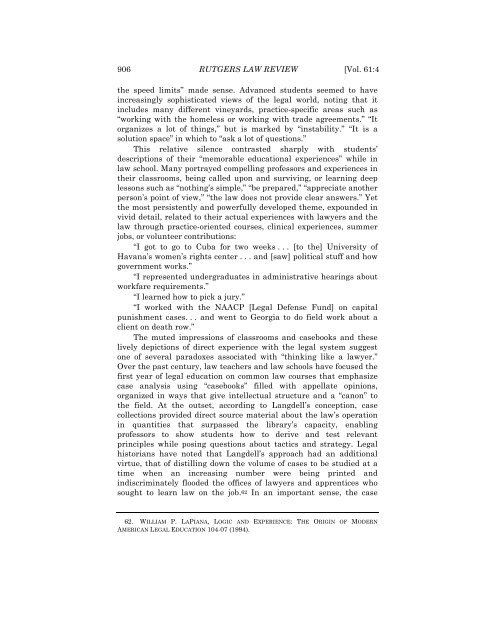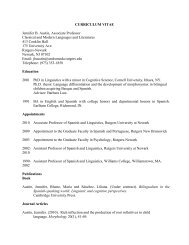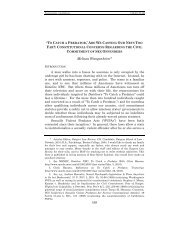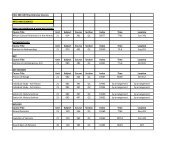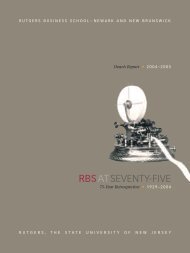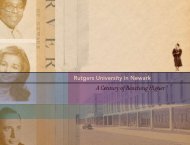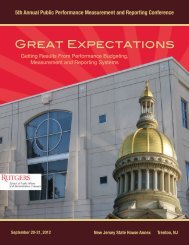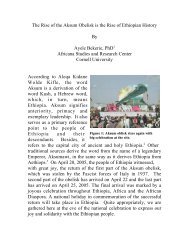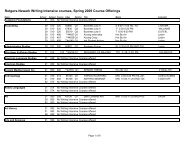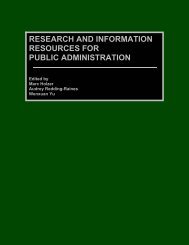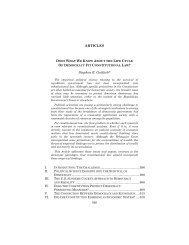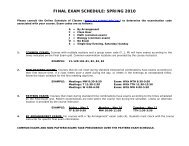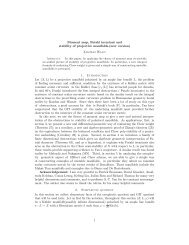Reframing Legal Education's - Rutgers Law Review
Reframing Legal Education's - Rutgers Law Review
Reframing Legal Education's - Rutgers Law Review
Create successful ePaper yourself
Turn your PDF publications into a flip-book with our unique Google optimized e-Paper software.
906 RUTGERS LAW REVIEW [Vol. 61:4the speed limits” made sense. Advanced students seemed to haveincreasingly sophisticated views of the legal world, noting that itincludes many different vineyards, practice-specific areas such as“working with the homeless or working with trade agreements.” “Itorganizes a lot of things,” but is marked by “instability.” “It is asolution space” in which to “ask a lot of questions.”This relative silence contrasted sharply with students’descriptions of their “memorable educational experiences” while inlaw school. Many portrayed compelling professors and experiences intheir classrooms, being called upon and surviving, or learning deeplessons such as “nothing’s simple,” “be prepared,” “appreciate anotherperson’s point of view,” “the law does not provide clear answers.” Yetthe most persistently and powerfully developed theme, expounded invivid detail, related to their actual experiences with lawyers and thelaw through practice-oriented courses, clinical experiences, summerjobs, or volunteer contributions:“I got to go to Cuba for two weeks . . . [to the] University ofHavana’s women’s rights center . . . and [saw] political stuff and howgovernment works.”“I represented undergraduates in administrative hearings aboutworkfare requirements.”“I learned how to pick a jury.”“I worked with the NAACP [<strong>Legal</strong> Defense Fund] on capitalpunishment cases. . . and went to Georgia to do field work about aclient on death row.”The muted impressions of classrooms and casebooks and theselively depictions of direct experience with the legal system suggestone of several paradoxes associated with “thinking like a lawyer.”Over the past century, law teachers and law schools have focused thefirst year of legal education on common law courses that emphasizecase analysis using “casebooks” filled with appellate opinions,organized in ways that give intellectual structure and a “canon” tothe field. At the outset, according to Langdell’s conception, casecollections provided direct source material about the law’s operationin quantities that surpassed the library’s capacity, enablingprofessors to show students how to derive and test relevantprinciples while posing questions about tactics and strategy. <strong>Legal</strong>historians have noted that Langdell’s approach had an additionalvirtue, that of distilling down the volume of cases to be studied at atime when an increasing number were being printed andindiscriminately flooded the offices of lawyers and apprentices whosought to learn law on the job.62 In an important sense, the case62. WILLIAM P. LAPIANA, LOGIC AND EXPERIENCE: THE ORIGIN OF MODERNAMERICAN LEGAL EDUCATION 104-07 (1994).


